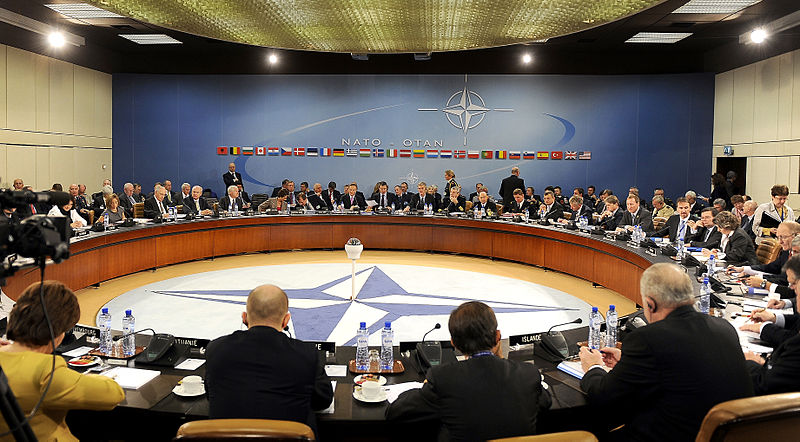
Event Recap: NATO’s Next Act – A Conversation With Ambassador Doug Lute
On Tuesday, July 26, the American Security Project hosted a webinar entitled “NATO’s Next Act – A Conversation with Ambassador Douglas Lute.” Ambassador Lute, a former U.S. Ambassador for NATO, shared his views on NATO’s new Strategic Concept, threats to the alliance, NATO enlargement, and the alliance’s response to the Russian invasion of Ukraine.
The most notable difference between the last Strategic Concept, released in 2010, and the new 2022 Strategic Concept is that the 2010 document called for a “strategic partnership between NATO and Russia” and the new strategic guidance recognizes Russia as the “most significant and direct threat to Allies’ security.” Ambassador Lute commented on the situational and security differences between then and now and shared his assessment on how the Alliance has responded to Russia’s aggression in Ukraine. Lute also commented on threats to Alliance cohesion, especially as we approach the colder winter months and the risks of fissure in the Alliance over the question of access to Russian natural gas.
There were significant changes agreed to in NATO’s military posture at the Madrid Summit. Forces in Eastern Europe will be bolstered and enlarged. Ambassador Lute argued that we can not underscore the significance of this development, but he questioned where the new troops will eventually come from. Nevertheless, there has been a “reset in the deterrence equation in Europe for a decade plus.”
Perhaps the most permanent development coming out of the Madrid Summit is the potential addition of new NATO members, Sweden and Finland. Ambassador Lute explored the benefits and drawbacks of adding these new members. Both bring advanced military capabilities to the table, and they are geographically important as the Arctic opens up and both countries increase the length of the land border between NATO and Russia.
Several leaders from Indo-Pacific nations were present at the Summit in Madrid and the Strategic Concept labeled China a principal challenge. Ambassador Lute addressed the question of whether NATO has evolved from regional security alliance to one with global reach and responsibility. Lute argued that there is unlikely to be consensus among NATO members to launch a military presence or operation outside of the North Atlantic area. Instead, he discussed NATO becoming more aware of Chinese commercial influence as it reaches Europe and other parts of the globe. Under the Chinese model, China expects there to be a political payoff and influence with many of its investment on infrastructure projects. NATO must recognize Chinese investments that could come with infiltration.
The conversation then closed as Ambassador Lute shared his thoughts on NATO framing climate change—a novel development in the Strategic Concept which identified climate change as the “defining challenge of our time.” While the new guiding principles contain a net-zero objective by 2050, and many NATO member states would rank the threat posed by climate change as more dangerous than the war of Ukraine, Lute argued that, at the moment, this is more conceptual than practical.





